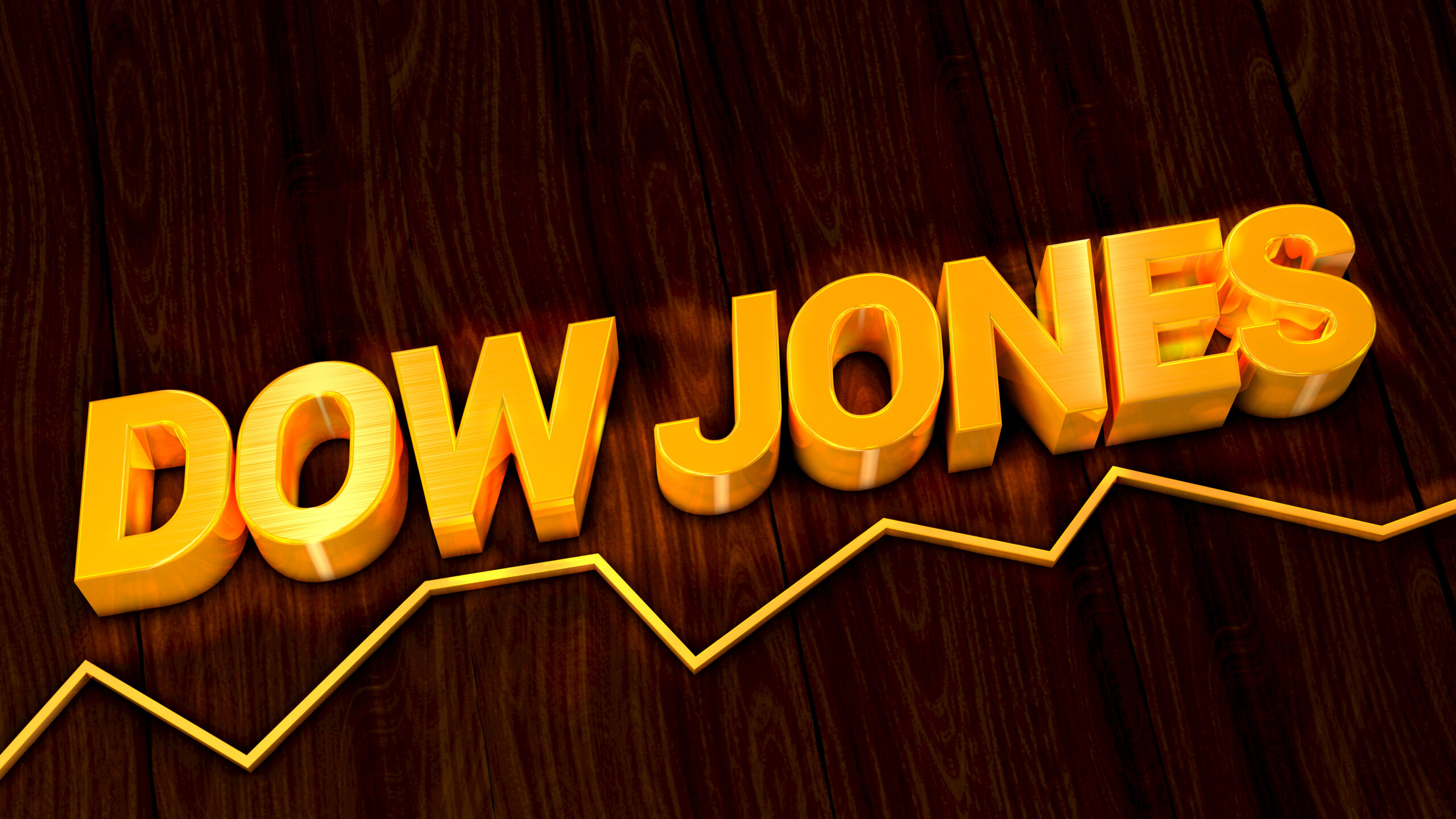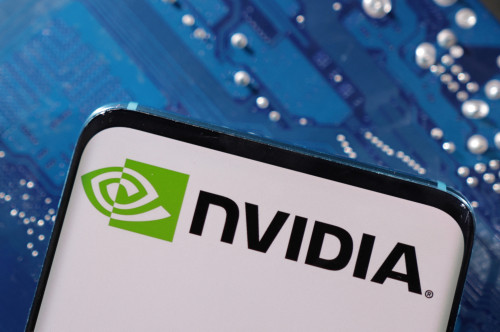
Golden writing of the Dow Jones stock market index above a simple line chart- 3d illustration
(Justin Vaughn, Editor, Options Trading Report)
Friday’s market turned the corner, with investor concerns on the sideline. High tech red hot earning reports stirred the market: Labor began to balance out with hiring drifting lower and wages leveling off, giving the market ‘room-to-run.’ All the indexes responded, led again by the tech-heavy equities, with the Nasdaq Composite jumping up 2% while the Dow Jones Industrial Average surged 450 points, up 1.2%. The standard bearer S&P 500 added 0.3% for the day and 0.5% for the week. Inflation worries subsided as the Fed stepped back, quieting comments. “That’s what the market wants to see, “said Matt Stucky, chief equity portfolio manager at Northwestern Mutual Wealth Management, “It doesn’t want to see the jobs market break, it wants to see it slowing and slowing enough to where the Fed can start to cut rates.” The steady stream of corporations revealing first quarter earnings continues to surprise Wall Street, and economists as many companies have defied predictions.
Monday’s market was ‘on-the-run’ after three strong sessions lifted all three indexes near highs, their best levels in a month, with the S&P 500 capping its “strongest 5 day rally of the year. Earning’s season proved American corporations were extremely successful as 76% reported besting year-ago same quarter. And the largest year-over-year boost since Q2 2022. Labor has settled back a bit but fits the equation of a strong economic economy. New York Fed President John Williams said: “monetary policy is in a very good place.”
Stocks turned sour on Tuesday with the Nasdaq Composite slipping lower, led by the high-techs while the Dow Jones Industrial Average and S&P 500 edged a bit higher. TikTok and its handler, ByteDance, owned by the Chinese Communist Government claims “The proposed law violates the First Amendment.” TikTok claims that it does not spy on U.S. users or any users worldwide. The U.S. government claims otherwise, that the Chinese government is using the server for high-tech surveillance, and can substantiate it. They’ve sued the U.S.in order to block a proposed new law that would force ByteDance to divest from its U.S. subsidiary or face a total ban.
Techs opened weaker Wednesday dragging the market downward, as it wobbled from the bell. Minneapolis Federal Reserve chief Neel Kashkari’s comments, and some influential tech earnings that came in weaker gave investors and traders pause, and gave the market a short-term hiccup. The Dow Jones Industrial Average Index hit a milestone, cresting 39,000, after popping 200 points. It was the 6th day in a row the Dow Jones has forged ahead. Both the Nasdaq and S&P 500 were sluggish, just in the red.
Our Daily Bread …. with food costs soaring across the board, in grocery stores and restaurants, the U.S. consumer is frustrated. As food prices surge, and inflation spikes, the dollar shrinks. According to the Labor Department’s latest numbers, “fast food restaurant prices in March were 33% higher than 2019 while in the same period grocery prices accelerated 26%. Food costs continue to rise in every category with no end in sight. “The macro headwinds have been more significant than I think we even anticipated coming into the year,” said McDonald ‘s chief Financial Officer Ian Borden, referencing the concern that consumers are ‘reigning in’ spending. A leading coffee purveyor, Starbucks noted “a drop in traffic of 7%,” ending March.
RUMBLINGS ON THE STREET
David Mericle of Goldman Sachs, in a report, WSJ “One should not expect all of the fluctuations in inflation to have a satisfying economic explanation. Getting the direction of the economy right is no guarantee of getting the inflation forecast right.”
Charlie Ripley, senior investment strategist for Allianz Investment Management, WSJ “It was a little bit of a sigh of relief in that the Fed isn’t thinking about restarting the hiking cycle. You look at the general macroeconomic picture and things seem pretty solid and the Fed reiterated that.”
Lori Keith, director of research and a portfolio manager with Parnassus Investments, Barron’s “We’ve had this narrative ping-pong about the economy going from a hard landing in a soft landing to no landing to maybe back to a soft landing,” said Ms. Keith. “There has been a lot of short-term noise, but the economy has been fairly resilient. Consumer spending remains strong.”
Neel Kashkari, president of the Federal Reserve Bank of Minneapolis, WSJ “If disinflation starts to come again and inflation starts to tick back down or we saw some marked weakening in the labor market, then that might lead us to cut back on interest rates,” he said at an interview at the Milken Institute Global Conference.




